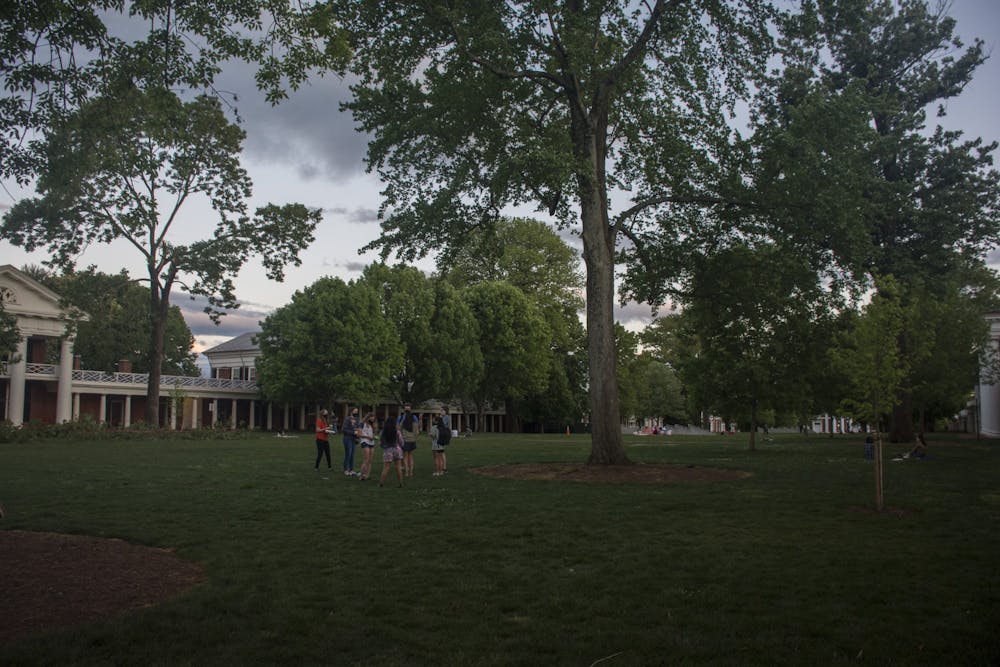While the U.Va. COVID-19 tracker shows the spring semester COVID-19 positivity rate at an all time low, a significant portion of the University body has previously tested positive for COVID-19. As of Wednesday, there have been almost 3,500 confirmed total COVID-19 cases within the University community during the fall and spring semesters. Experts give advice to those that are recovering from the virus and offer insight into what they should expect.
Dr. Costi Sifri, director of hospital epidemiology at the University, emphasized that most students have made a full recovery but some may experience lingering symptoms of the virus even after the 10-day period of symptomatic infection.
“It sometimes takes a couple of weeks to fully bounce back,” Sifri said. “You can notice some differences in energy level and appetite, general sleep and things like that.”
He furthered that it is not uncommon for people to lose their taste and smell for a couple of weeks or even months. He also listed brain fog, shortness of breath and heart rate disturbance as other potential lingering symptoms of the virus. However, Sifri explained that even if students do experience any of these symptoms, after the first 10 days of infection, they are no longer at risk of transmitting the virus.
Second-year College student Peyton Schowalter tested positive for COVID-19 in early September and experienced lingering symptoms of the virus.
“I lost my sense of smell and taste entirely for two weeks after my two-week quarantine,” Schowalter said. “My taste came back gradually and was back to normal about a month after getting COVID-19, and my smell was completely gone for a month. I gradually got it back but not until three months after I contracted the virus.”
Dr. William Petri, chief of the Division of Infectious Diseases and International Health at the University, estimated that after testing positive for COVID-19, protection from reinfection should last for approximately six months. However, after that point, scientists are unsure about the lasting protection antibodies provide. As a result, both Petri and Sifri emphasized the importance of receiving a COVID-19 vaccine after recovering from the virus.
“If you had COVID-19, it is not a reason not to get vaccinated,” Petri said. “Part of the reason for doing that is because vaccine induced immunity is more powerful than the immunity that you get from natural infection.”
Sifri added that those who have recovered from COVID-19 should not rely on natural immunity alone for protection against reinfection. He also noted the possibility that vaccine induced immunity may provide more long-lasting protection.
Petri discussed that side effects associated with the two-dose COVID-19 vaccines — Pfizer and Moderna — may present on different timescales in those who have had the virus compared to those who have not. He explained that people who have had COVID-19 may be more likely to experience side effects such as local tenderness in the arm, low grade fever or fatigue after the first dose of a vaccine. Contrarily, people who have never tested positive for the virus may experience these more harsh side effects after the second dose.
Sifri added that this may be a result of the first vaccine acting similarly to a booster shot in those who have tested positive for COVID-19 in the past. However, he noted that the evidence he has seen thus far is rather anecdotal.
Schowalter received the first dose of the Pfizer-BioNTech vaccine and experienced some mild arm soreness and fatigue.
Second-year College student Emma Forrestal tested positive for COVID-19 in early February, and she has since received both doses of the Pfizer-BioNTech vaccine. While she experienced arm soreness and fatigue after each dose, she experienced significantly less fatigue after the second dose.
While there are guidelines from the Centers for Disease Control and Prevention concerning safe behaviors post-vaccination, the CDC has not released similar guidance for people who have recovered from COVID-19. Petri suggested the same guidelines should apply to those who have been vaccinated and those who have recovered from COVID-19.
“Just thinking about it logically … if you've recovered from COVID-19, you have at least like six months of immunity,” Petri said. “It would be safe for you to be around other people who have recovered or other people who've been vaccinated.”
The University requires all students — regardless of whether they’ve previously tested positive for the virus or been fully vaccinated — to continue following safety precautions, such as physical distancing and abiding by gathering limits. Students who tested positive must still abide by the University’s masking policy, which only was reworked on April 29 to allow fully vaccinated individuals to not wear masks when socially distanced.
Students who have tested positive for COVID-19 in the past 150 days are not required to submit weekly asymptomatic COVID-19 prevalence tests. Petri explained that this is because PCR tests are very sensitive and can detect small amounts of virus leftover from an initial infection that cannot infect other people.
“Your PCR test could be positive a month later,” Petri said. “That should not be concerning because you’re not at risk of infecting somebody else past day 10.”
Because a PCR test may provide a positive result to someone who has recovered from COVID-19, it can be difficult to distinguish between active and inactive COVID-19 infection.
“Because we don’t have the ability to determine this, we have to take the most conservative approach,” Sifri said.
He proposed a hypothetical scenario in which a student tested positive for COVID-19 in December but recently had an exposure and began to develop symptoms consistent with COVID-19. If the student tested positive again, it would be rather unclear if the positive test is from the old infection or the recent exposure.
“We just have to take that conservative approach and practice as if this is a new infection and have the same advice in terms of isolation and contact tracing that we would if it were a clear new infection,” Sifri said. “It’s just the safest thing to do.”







